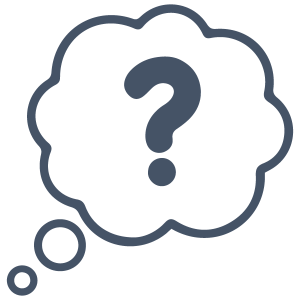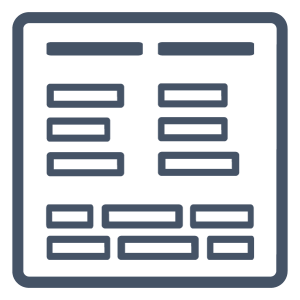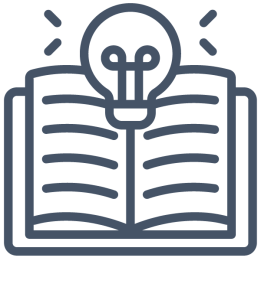
Overview
This week we will focus on precision searching to help us find information (i.e., academic sources) on our topic.
Precision searching can be defined as a process in which we structure or plan our search for sources for a particular academic project by taking the following steps to meet our research needs:
- Identify our key concepts or ideas;
- List related terms/synonyms for these ideas;
- Create a search string (i.e., a combination of relevant terms) that is readable by a database;
- Search for terms and repeat the search, based on our results, i.e., we might have to change our terms in order to get a set of relevant sources.
Not only is it important to use a set of relevant key concepts or words, it is also important to choose databases (search engines) that contain academic materials. The university library provides access to a range of databases that can be used for scholarly work.
Each database will allow you to do both a basic search (i.e., a search in the default search field that uses all the keywords entered). You will also be able to do an advanced search (i.e., a complex search with multiple terms that can be modified using specific strategies and operators).
Readings
Core readings and videos (all groups)
Note: for the following modules, watch the videos.
Attridge Bufton, M (2021). Search for sources [Brightspace modules]. Carleton University Library.
- Search skills: Do a structured search.
- Search skills: Truncation and phrases.
- Use search engines to find sources: Omni.
Attridge Bufton, M. (2021). Evaluating academic, popular, news, and social media articles [Brightspace module]. Carleton University Library.
Booth, W. C., Colomb, G. G., Williams, J. M., Bizup, J., & Fitzgerald, W. T. (2024). The craft of research (5th ed.). University of Chicago Press.
- Chapter 2: From questions to a problem
- Chapter 3: Finding and evaluating sources
Bullock, R., Brody, M., & Weinger, F. (2026). The little seagull handbook. Fifth edition. W.W, Norton & Company.
- Read R-2: Evaluating sources
- InQuizitive:
- o Evaluating sources
Reading Club group readings
Groups 1 & 5
Maccallum, L. (n.d.). Choosing and using sources: A guide to academic research. (1st Canadian edition). Ohio State University. https://caul-cbua.pressbooks.pub/choosingsources/
- Chapter 7: Categorizing sources
- Chapter 11: Popular, professional, & scholarly
- Chapter 14: News as a source
Groups 2 & 4
Maccallum, L. (n.d.). Choosing and using sources: A guide to academic research. (1st Canadian edition). Ohio State University. https://caul-cbua.pressbooks.pub/choosingsources/
- Chapter 21: Why precision searching?
- Chapter 22: Main concepts
- Chapter 23: Related and alternative forms
- Chapter 24: Search statements
Group 3
Yancy McGuire, S. (2018). Teach yourself how to learn. Strategies you can use to ace any course at any level. Stylus.
- Chapter 4: The power of Bloom’s taxonomy
Before class activities
 Key questions to ask while reading and watching
Key questions to ask while reading and watching
- What is a key concept? What is a synonym?
- How does my research topic and question inform my search for sources?
- What is the advantage of doing a precision search?
- What are Boolean operators and how do they help me do a precision search?
 “Pile of words”: Group and label key concepts
“Pile of words”: Group and label key concepts
Organize into two lists of similar terms and label each list (include definition of each label).
Remember: You may already understand some of these ideas relatively well and others may be new to you—you are encouraged to look up (e.g., in a dictionary or encyclopedia) the unfamiliar concepts in order to create your lists.
Make note of your reasons for grouping the ideas together as you will share them in class. These are self-paced individual activities, for which there are no right or wrong answers. The instructor will not grade this work.
 Predict a learning outcome
Predict a learning outcome
Reading Club activities
Share the results of your pre-class activities before class activities and respond to additional prompts provided by your instructor(s).
After class activities
After class, annotate each reading for key ideas. For videos and podcasts, you can annotate the transcript.
Summarize the author’s key ideas from each reading. Highlight the following information:
- Purpose of the reading;
- Scope (the extent of the study);
- Thesis (the main argument[s]);
- Method (research method if applicable);
- Outcome(s) and conclusion.
Respond to the statement about the readings: do you agree or disagree with the statement and why?
“You’ve probably been searching in a more casual way for years and may wonder: Is going to the trouble of precision searching actually worth it? Yes, definitely, for searches that are important to you!” (Maccallum, 2020).
Did these readings provide any inspiration or insights you can use in this or any of your other classes? If yes, what is the inspiration and/or what are the insights?

